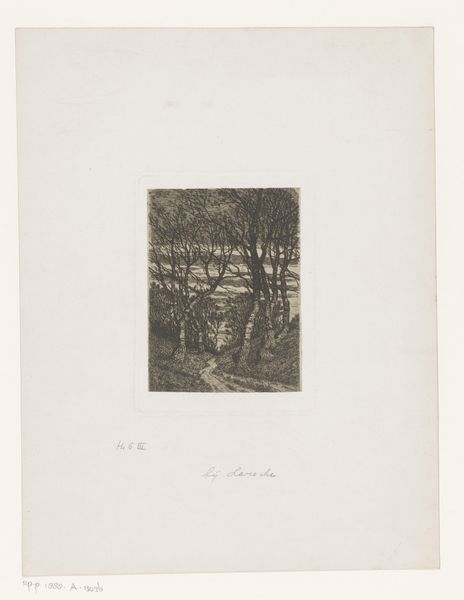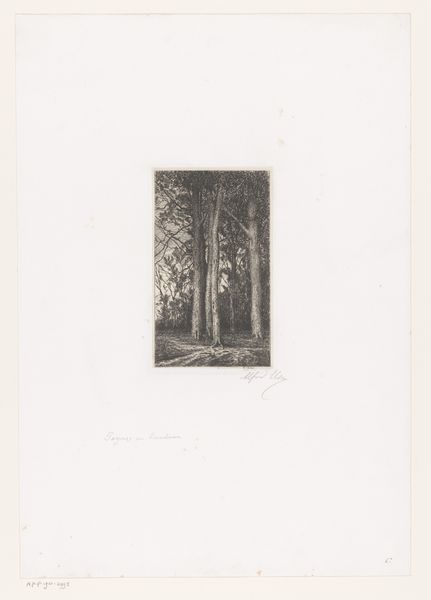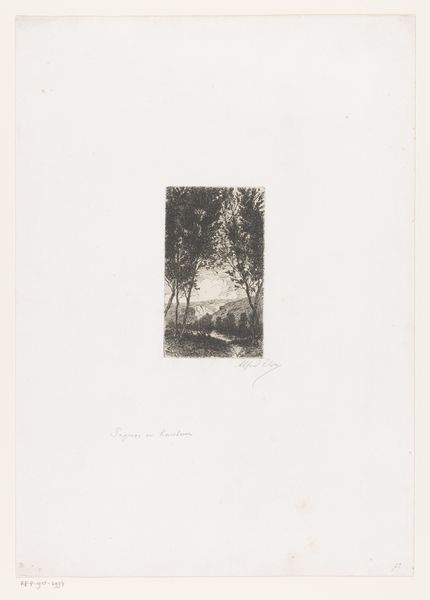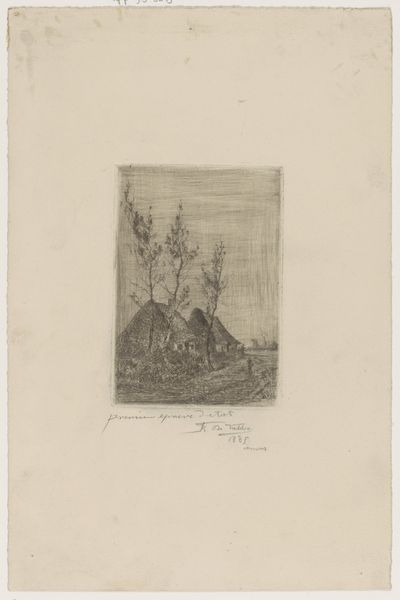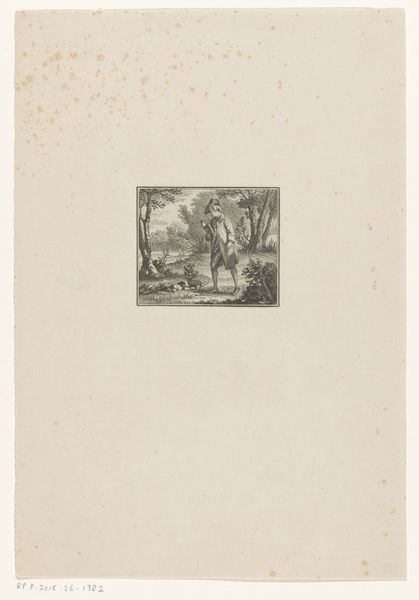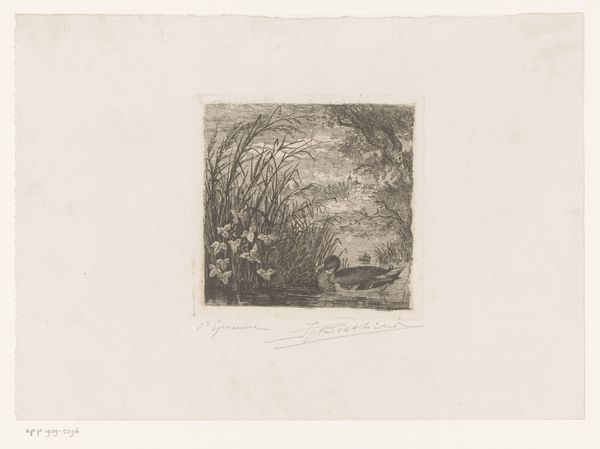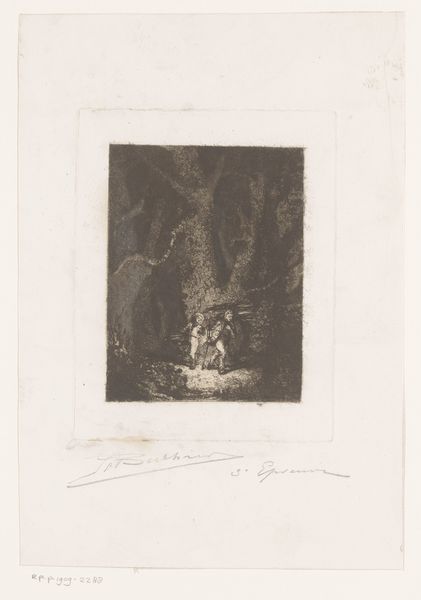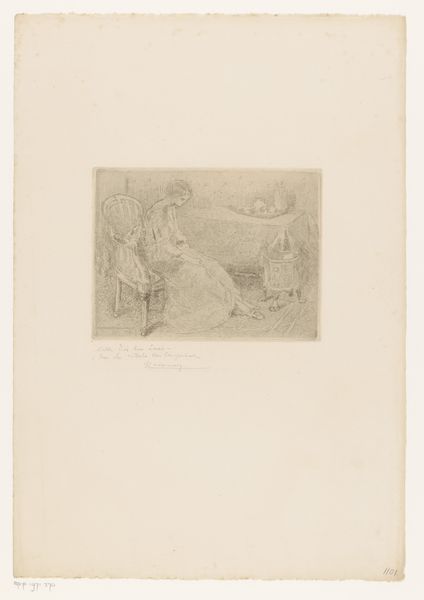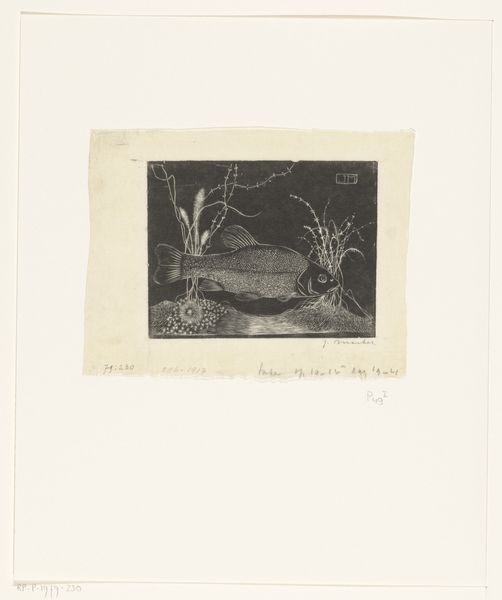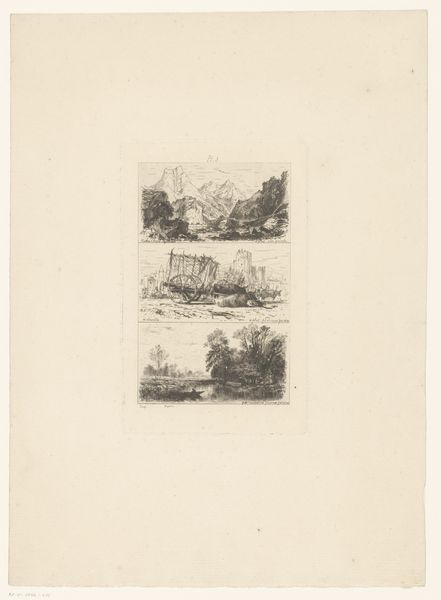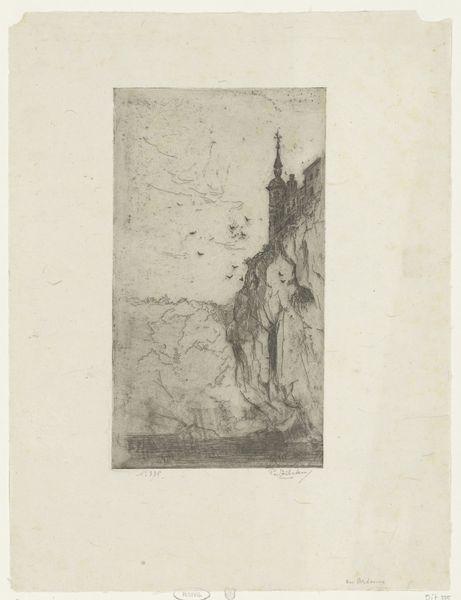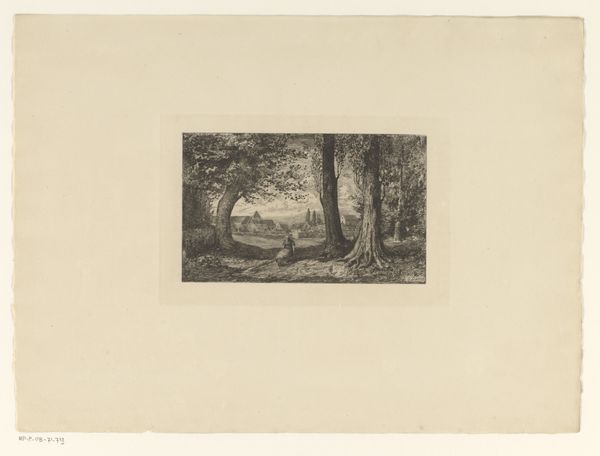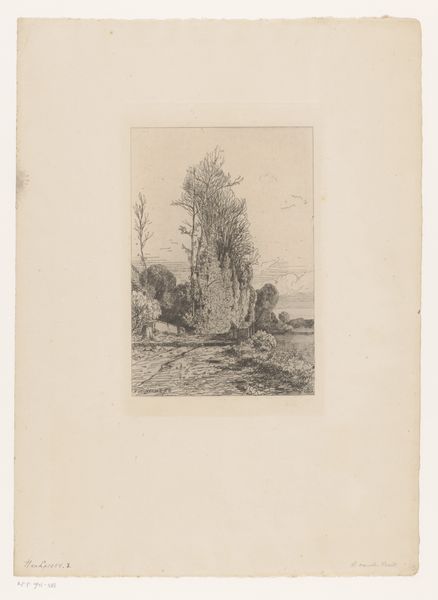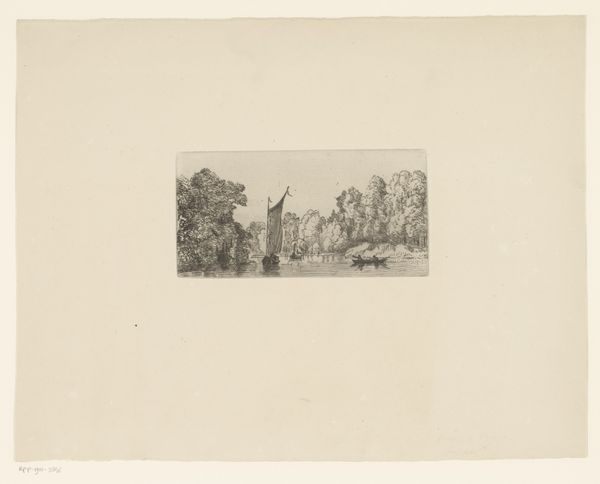
drawing, print, etching, paper
#
drawing
# print
#
etching
#
landscape
#
paper
#
romanticism
Dimensions: height 240 mm, width 173 mm
Copyright: Rijks Museum: Open Domain
Editor: So, this is "Tomb of Napoleon on St. Helena," an etching by Roelof van der Meulen, dating from 1831. It's quite a somber scene, and I’m struck by the willow tree weeping over what looks like a very modest grave. What do you see in this piece? Curator: The piece evokes complex sentiments when viewed through a post-colonial lens. Here we have Napoleon, a figure of immense power and impact, reduced to a solitary grave on a remote island. But, how do we reconcile our understanding of him as a military leader with the narratives of oppression and exploitation he represents for colonized populations? Editor: That's a great point! I was focused on the romanticism of the image, the isolated figure... Curator: The "romanticism" you mention naturalizes and perhaps even obscures the brutal realities of Napoleon's actions and their long shadow across the globe. Can we consider the role this imagery played in constructing a narrative of heroic exile, rather than accountability? Editor: So, it's less about personal tragedy and more about the whitewashing of a complex and often violent history. I see how situating it within the colonial context changes everything. Curator: Precisely! It forces us to ask: Whose perspective is privileged here, and whose stories are silenced by this romantic depiction of a fallen hero? Considering those marginalized perspectives really shifts our understanding. Editor: I never considered it from that angle. Now I’m seeing the image in a completely different light. Curator: That critical lens is crucial for understanding the complexities and contradictions within artworks and the power dynamics they represent. Always keep asking: who benefits from this narrative?
Comments
No comments
Be the first to comment and join the conversation on the ultimate creative platform.
